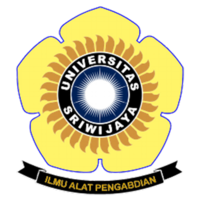The Views of Bengkulu City Officials to English in Globalization Era: An Input to Language Policy and Planning
Abstract
In the age of globalization, English mastery is indispensable. The language policy needs to develop ways to provide a good environment for English cultivation in the community. Bottom-up input might provide some ideas for the policy. This study aimed to explore such bottom up input, through the investigation of the views of some senior officials towards English in Bengkulu city, Indonesia. The design was descriptive. The sample consisted of 40 senior officials, from governmental and business sectors, in the city. The instrument was an attitude scale. The result showed that most respondents supported a more extensive use of English in various domains. They accepted the use of English, orally and in writing, in the family and neighborhood, work environment (office, conference, public service), media (printed and electronic) and educational institutions. However, many respondents rejected the use of English as a criterion for promotion. They also rejected the use of English in social events. The result showed that the officials could accept more use of English in public domains as well as in private domains. Such a result could be used as consideration for future language policy.
Keywords: Language policy, English use in the community, city officials’ views
Full Text:
105-111References
Arikunto, S. 3020. Prosedur penelitian: Suatu pendekatan praktek. [Research procedure: A practical approach]. Jakarta, Indonesia: Rineka Cipta.
Azwar, S. 1988. Sikap manusia: Teori dan pengukurannya. [Human attitude: Theory and measurement]. Yogyakarta, Indonesia: Liberty.
Cooper, R. L. (1989). Language planning and social change. Cambridge, UK: Cambridge University Press.
Dardjowidjojo, S. (2003). Rampai bahasa, pendidikan, dan budaya: Kumpulan esai. [Anthology of language, education, and culture: Selected essays]. Introduction by Anton Moeliono. Jakarta, Indonesia: Yayasan Obor.
Fishman, J. A. (1972). The relationship between micro-and macro-sociolinguistics in the study of who speaks what language to whom and when. In J. B. Pride & J. Holmes (Eds.), Sociolinguistics (pp. 15-32). Harmondsworth, UK: Penguin.
Lauder, A. (2008). The status and function of English in Indonesia: A review of key factors. Makara, Sosial Humaniora, 12(1), 9-10. Retrieved June 18, 2018, from
https://media.neliti.com/media/publications/4391-EN-the-status-and-function-of-english-in-indonesia-a-review-of-key-factors.pdf
Moeliono, A. M. (1986). Language development and cultivation: Alternative approaches in language planning (K. Ikranagara, Trans.). Canberra, Australia: The Australian National University.
Sembiring, B., Kartini, D., dan Suwarno, B. (2006). Pemetaan highest frequency words serta university word list pada mahasiswa tahun pertama di kota bengkulu dalam perspektif peningkatan daya saing dalam bahasa inggris di era globalisasi. Laporan penelitian tak dipublikasi. [The exploration of highest frequency words and university world list among first year university students in Bengkulu city in the perspective of improving the competitive power in /English the globalization era. An unpublished research report]. Bengkulu, Indonesia: Universitas Bengkulu.
Spolsky, B. (2004). Language policy. Cambridge, UK: Cambridge University Press.
Article Metrics
Abstract view : 312 times105-111 - 162 times
Refbacks
- There are currently no refbacks.
